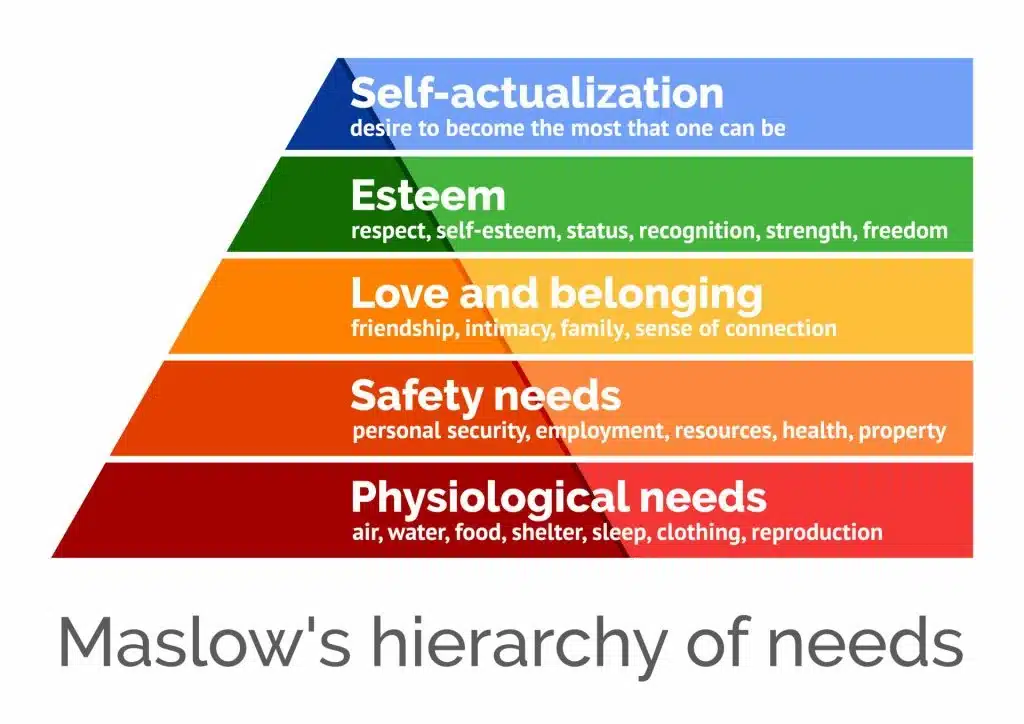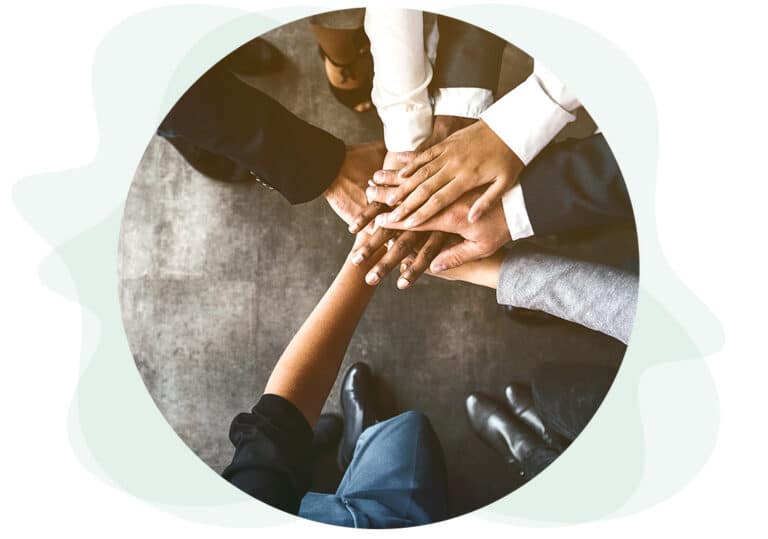The Science of Happy Customers
Science and customer service don’t seem like they could possibly belong together. When some hear the word science they might envision a person in a lab coat, swishing some sort of colorful chemical around in a beaker. That guy is doing science! What gets overlooked is the science behind what makes our customers happy. It’s easy to understand that the better you treat your customers, the more likely they will be to return to your business. If we dig a bit deeper, we can find the psychological reason behind why these customers love certain companies while others’ attempts at good service fall flat.
Moods Affect Decision Making
Moods have a massive impact on how we make decisions. Happiness, in particular, plays a big factor in how consumers spend their money. A study published by The Journal of Consumer Research explains the ways in which a happy mood can play a role in decision-making.
“For instance, when people are in a positive mood, they are more likely to engage in heuristic, or inquisitive, processing, to be optimistic about favorable events occurring, to think abstractly rather than focus on immediate and proximal concerns, to be creative in their problem solving, and to evaluate people and objects more favorably.”
The time to strike your customers is when they are in a good mood, but this is simply unrealistic; it is absurd to think you will encounter happy customers all the time. Therein lies the challenge: humans can be fickle and moody. And when the customer isn’t happy, they have a harder time making any kind of decision.
Michael Fishman, an expert on consumer behavior and psychology, told Forbes that businesses can have a hard time nailing down what customers want because they don’t always behave in a rational way.
“Most people can’t answer the simple question of why they want the things they want,” says Fishman. “That’s because our brain drives our decision-making process in ways that we’re not really aware of.”
Understanding Happy Customers
In other words, a clear understanding of happy customers can create a business that runs smoothly and meets their needs.
“Consumer psychology is all about getting into that unconscious territory where people are being directed to make purchases for reasons they are not clear about,” says Fishman. He added that when businesses dig down to interpret their customers’ psychology and behaviors, those businesses become more predictable and compassionate.
So, how can the average small business owner connect the dots between how the customer feels and the customer service they provide? One way to tap into your customers’ most basic psychological factors for happiness would be to implement Abraham Maslow’s Hierarchy of Needs theory into your customer service strategy. We know you’re wondering how a theory you learned in Psych 101 applies to your business and the overall happiness of your customers.
The DL on the Hierarchy

In case you aren’t aware, the Hierarchy of Needs theory was created by Maslow because he wanted to understand what motivates people to action. According to the site, SimplyPsychology, Maslow’s theory states “that people are motivated to achieve certain needs. When one need is fulfilled a person seeks to fulfill the next one, and so on.”
Maslow created a pyramid diagram to depict the five motivational needs: physiological, safety, love/belonging, esteem, and self-actualization. He believed these basic needs motivate people to act, particularly if the basic levels of need are not met. Understanding these needs are key to having happy customers.
Creating Happy Customers: Maslow and Your Customer Service
How is it possible that a psychological theory written in the 1940’s could apply to your customers and their happiness with your company? Beyond applying this theory to your personal goals and balance, the Hierarchy of Needs can ensure that you are meeting your customers’ needs on the most basic levels and then some. Let’s break it down by each motivational need to see how it applies to your business.
Physiological Needs
Whether your product is an actual jacket for someone to wear or a service that will help them do business more efficiently, you are contributing to this base need to be sheltered from the elements. For example, say your business sells a software that helps others – businesses and personal users – to manage their finances with ease. Your customers can rest easy knowing you made their finances much more manageable. If their finances are in place, they can maintain a home, feed themselves, and clothe themselves. Your business is helping them to achieve their most basic human needs.
Safety
Do you make your customers feel safe? Can they trust you with their personal information? According to a post on the site TheEmotionMachine, your business will tank if your customers don’t feel safe with you.“When we buy products or services from someone else, we want to feel safe and trusting of that person. We want to feel accepted. And we want to feel like the people we are doing business with really care about us and our needs. Without that relationship, most businesses can’t last very long.”So what can you do to make your customers feel safe with you? Keep their personal information safe: In a poll taken by Radius Global Market Research, 75 percent of Internet users said they would stop using a service or product— or stop doing business with a particular retailer— if they felt their privacy was violated.
Some steps you can take to make your customers feel safe with you? Reassure them by using language regarding secure checkout measures. You would also want to be sure your site is updated and looks modern. An old or outdated looking site screams, “This is a scam!” A site that is modern looking gives the sense that you have the most updated security measures and makes you look more trustworthy. You can get more information on protecting sensitive customer data at StaySafeOnline.org.
Love/Belonging
A customer experience that has a sense of family or that we-are-in-this-together vibe creates a united front with you and your customers. It’s a level playing field. We all belong. This can be accomplished by creating an ultra-personal experience for each customer.For example, when a new customer purchases something from your online store, send a handwritten thank you note! This may seem so old-fashioned, but it’s a step that a lot of companies overlook due to the amount of time it can take. Thanking them for their business and even including an incentive for telling a friend would go a long way in making the customer feel as if they’re part of the family.
Esteem
The esteem level has to do with the need to feel appreciated. Does your business take the time to recognize your customers or show appreciation on a regular basis? If not, it’s definitely something you should consider. People love reciprocity. According to a post on BufferApp, “people are willing to spend more with your business if you give them a feeling of importance and reward their repeat business.”
Reciprocity can take many forms: customer loyalty programs or special discounts are two ways you can show your customers you appreciate them. But it can go further than that! For example, when a person orders an item from Zappos.com, they are told the estimated ship time will be 3 – 4 days. The cool thing: Zappos automatically upgrades all of its customers orders to overnight shipping without saying a thing. Check out this in-depth post by HelpScout to learn more about reciprocity and how it applies to business.
Self-Actualization
Maslow described the final level in the Hierarchy of Needs as this: “What a man can be, he must be. This need we may call self-actualization…It refers to the desire for self-fulfillment, namely, to the tendency for him to become actualized in what he is potentially. This tendency might be phrased as the desire to become more and more what one is, to become everything that one is capable of becoming.” What small business owner can say that they wouldn’t want to help their customers to reach their full potential? After all, the majority of businesses are started to improve upon something that already exists. And it’s not just a pipe dream; you could actually sell a product or service that gives your customers a sense of self-actualization.
Whether you’ve made their business run more efficiently or a task in their personal lives much easier, you are helping them to become the people they want to be. How do you know that your customers are reaching self-actualization with your business? Use feedback from customer surveys, remembering to share those over-the-top reviews on social media or your website. Use a tool like Delighted or Promoter to measure your business’ Net Promoter Score.
In Conclusion
While it’s true people make better decisions when they are in the best of moods, it is simply unlikely that you will have happy customers all the time. Arming yourself with some psychological knowledge and a willingness to create an environment that is customer-centric gives you the power to create a seriously happy customer base.
So, how can the average small business owner connect the dots between how the customer feels and the customer service they provide? One effective approach is to implement Maslow’s Hierarchy of Needs theory into your customer service strategy. By understanding and addressing the fundamental psychological factors that contribute to customer happiness, businesses can build stronger connections with their clientele. It’s remarkable how a theory you might have encountered in Psych 101 can have a profound impact on the overall satisfaction of your customers and, consequently, the success of your business.







